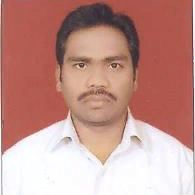International Journal of Engineering and Manufacturing (IJEM)
IJEM Vol. 4, No. 4, 22 Dec. 2014
Cover page and Table of Contents: PDF (size: 447KB)
Multi Objective Optimisation of Turning Process Parameters on EN 8 Steel using Grey Relational Analysis
Full Text (PDF, 447KB), PP.14-25
Views: 0 Downloads: 0
Author(s)
Index Terms
Turning, Taguchi method, Grey relational analysis, EN8 steel
Abstract
The objective of the present paper is to optimize the machining parameters for turning of EN8steel on lathe machine using a combination of Taguchi and Grey Relational Analysis to yield minimum cutting forces and surface roughness. The process parameters such as rotational speed, feed, depth of cut and cutting fluid have been selected. In this study, the experiments were carried out as per Taguchi experimental design and L9 orthogonal array was used. Analysis of variance (ANOVA) was also used to find out the most influence of processing parameters on the responses. The regression equations were also established between the process parameters and responses. The results indicate that the depth of cut is the most significant factor affecting the cutting force and surface roughness followed by a feed, speed and cutting fluid.
Cite This Paper
G. Sridhar, G. Venkateswarlu,"Multi Objective Optimisation of Turning Process Parameters on EN 8 Steel using Grey Relational Analysis", IJEM, vol.4, no.4, pp.14-25, 2014. DOI: 10.5815/ijem.2014.04.02
Reference
[1]Merchant, ME, Mechanics of the metal cutting process. Journal of Applied Physics, Vol. 16, 1945, pp.318-324.
[2]Finides, B, Aouici, H, Yallese, M A. Cutting forces and surface roughness in hard turning of hot work steel X38CrMoV5-1 using mixed ceramic, Journal Mechanical Vol.2(7), 2008, pp.73-78.
[3]Dilbag, S P, Venkateswarao R.,A surface roughness prediction model for hard turning process. International Journal Manufacturing Technology, Vol. 31, 2007, pp.1115-1124.
[4]Bouacha, K., Yallese, Ma., Mabrouki, T., and Rigak, JF. Statistical analysis of surface roughness and cutting forces using response surface methodology in hard turning of AISI 52100 bearing steel with CBN tool, International Journal of Refractory Metals and Hard Materials,Vol.28,2010, pp.349-361.
[5]Wang HY, Lan T S, parametric optization on multi objective presentation turning using Grey relational Analysis. Information Technology Journal, Vol.7(7), 2008, pp.1072-1076.
[6]Yahya Y, An experimental investigation on effect of cutting fluid in turning with coated carbides tool. Journal of Mechanical Engineering, Vol. 56, 2010, pp.1-7.
[7]Yazdani F, Hosseini SM, Barforuoshi T, A New Optimization Model for Distribution Siting and Sizing in Unbalanced Three-phase Networks for Loss and Cost Minimization. I.J. Engineering and Manufacturing,2014, pp.1-11.
[8]Wang J, Wang W, Wu S, A New Support Vector Machine Optimized by Simulated Annealing for Global Optimization. I.J. Engineering and Manufacturing,2012, pp. 8-14.
[9]Mahdavinejad, RA, Saeedy S, Investigation of the influence parameters of machining of AISO304 stainless steel. Sadhana, Vol.36,2011, pp.6, pp. 963-970.
[10]Allattin K, Ferhat Y, Application of Grey relational analysis in high-speed machining of hardend AISI D6 steel. Proc/Mech E Part c: Journal Mechanical Engineering Science,Vol. 227(7), 2012, pp.1566-1576.
[11]YinFong T, Fu-Chen, Multi-objective process optimization for turning of tool steels. International Journal of Machining and Machinability of Materials, Vol.1(1), 2006, pp.76-93.
[12]Phadke S M, Quality Engineering using robust design Englewood cliffs. National Journal Prantice Hall, 1989.
[13]Roy R., A Primer on the Taguchi Method. 1990, Van Nostrand Reinhold.
[14]Deng J L, Introduction to Grey system.The Journal of Grey System, Vol.1, 1989, pp.1-24.
[15]Vijaya K, Chincholkar A M., Effect of machining parameters on surface roughness and material removal rate in polymer pipes. Materials and Design, vol.31, 2010, pp.3590–3598.
[16]Wen, K L, The Grey system analysis and its application in gas breakdown. The International Journal of Computational Cognition, Vol.2, 2004, pp.21–44.
[17]Asokan P, Kumar R R, Jeyapaul R., Santhi M , Development of multi-objective optimization models for electrochemical machining processes. International Journal of AdvancedManufacturingTechnology, Vol. 39, 2008, pp.55–63.
[18]Datta S , Bandyopadhyay A , Pal P K, Application of Taguchi philosophy for parametric optimization of bead geometry and HAZ width in submerged arc welding using mixture of fresh flux and fused slag. International Journal of Advanced ManufacturingTechnology,36,(2008), 689–698.
[19]Venkateswarlu G, Davidson M J., and Tagore G R. N, Influence of process parameters on the cup drawing of aluminum 7075 sheet. International Journal of Engineering Science Technology, Vol. 2, 2010, pp. 40-49.

